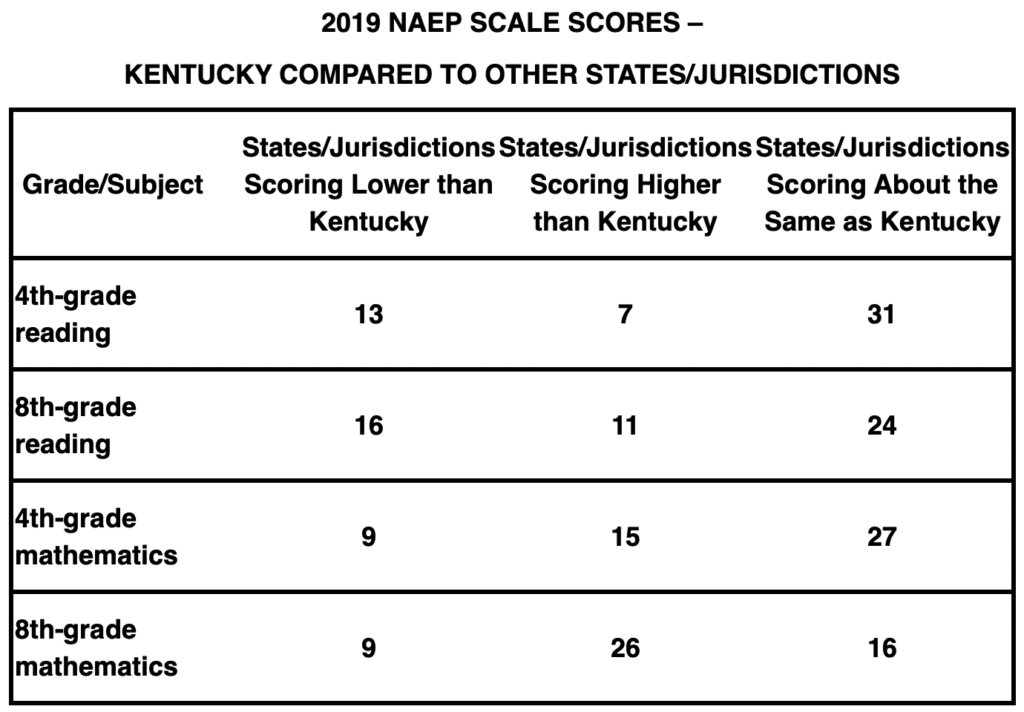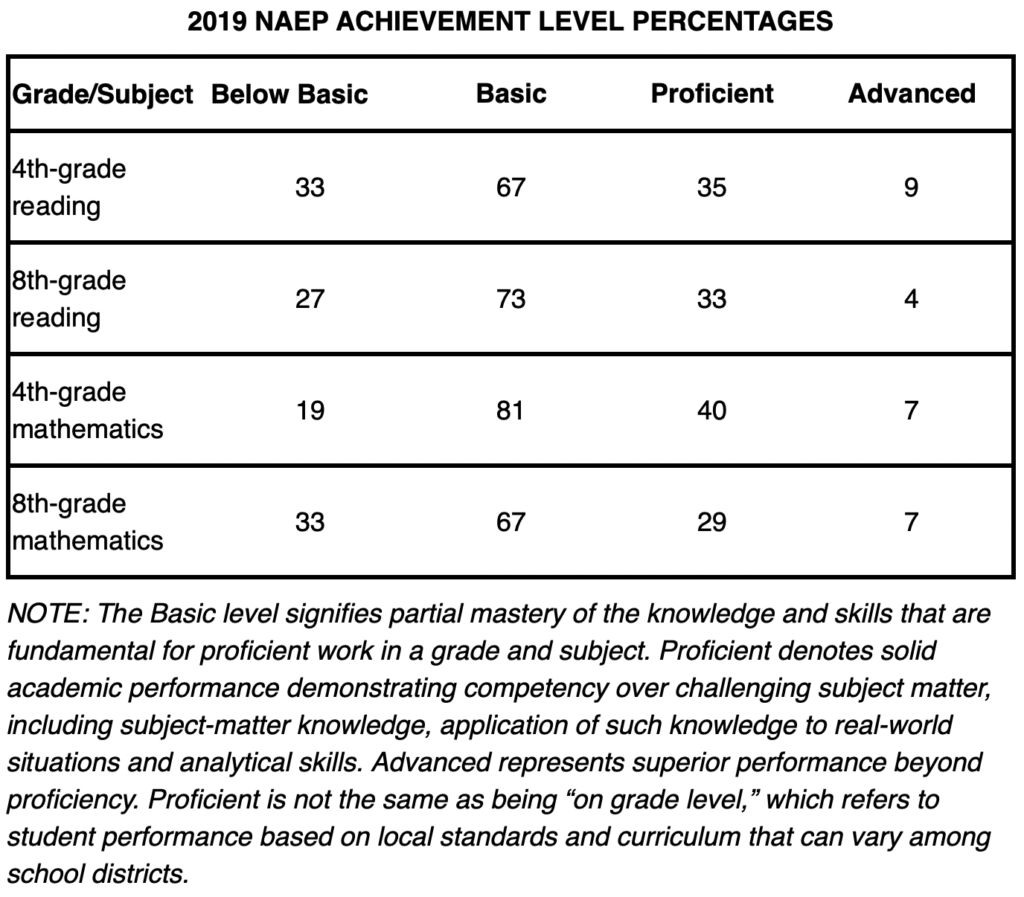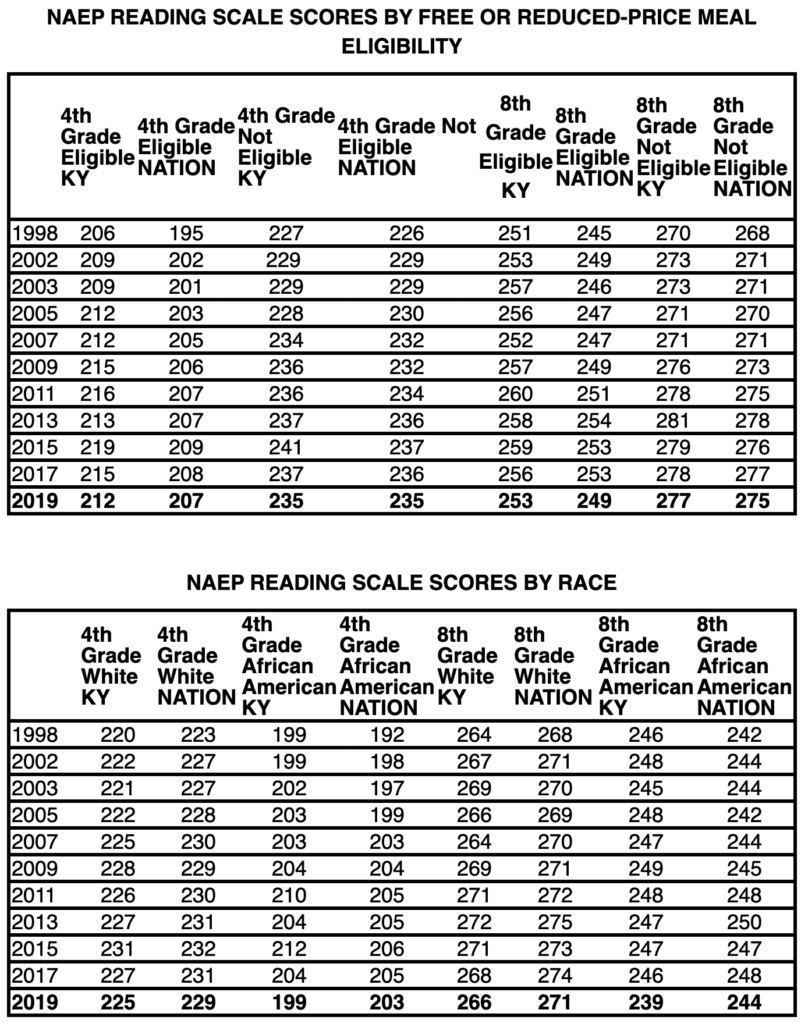FRANKFORT (October 30, 2019) – Kentucky schools have failed to make progress in the critical areas of 4th- and 8th-grade reading and mathematics for a decade (see attached chart), according to National Assessment of Educational Progress (NAEP) scores released today, . The assessment, which is given every two years to a sample of elementary and middle school students throughout the country, was administered in the spring of 2019 to 6,300 students in 318 Kentucky schools.
NAEP is the only assessment that measures what U.S. students know and can do in various subjects from state to state and in some urban districts (including Jefferson County Public Schools). While Kentucky’s students performed about the same as students in roughly half of other states, scores either remained the same from 2009 and 2017 or dropped slightly.
Student performance on NAEP fits into one of four categories: Below Basic, Basic, Proficient or Advanced. In Kentucky, 33% of 4th-graders and 27% of 8th-graders were Below Basic in reading, signaling what Kentucky Education Commissioner Wayne Lewis refers to as an “academic emergency.” In mathematics, 19% of 4th-graders and 33% of 8th-graders scored at the Below Basic level.
“I would like us to make more progress than we’ve had recently in both reading and math, but the number and percentage of Kentucky 4th- and 8th-graders with performance at the Below Basic level on NAEP is what troubles me most. The results are not surprising, however, in that these results align with the results of recent statewide assessment results on K-PREP,” said Lewis.
“If we are serious about changing these outcomes, we have to act intentionally and strategically to ensure all Kentucky students, particularly our most vulnerable students, have access to high-quality, standards-aligned curriculum and effective instruction. If we don’t change the quality of learning experiences provided for students in classrooms, we shouldn’t expect student outcomes to change. Some of our students come to us with significant challenges, and it is those students who need great schools the most. Some Kentucky schools and districts are beating the odds and growing even our students with the greatest needs. Others are not. That has to change.”
Jefferson County Public Schools (JCPS) saw a slight increase in 8th-grade math performance. The district saw a 7-point decline in 4th-grade reading.
“The performance of JCPS has a tremendous impact on Kentucky’s progress, as it is the largest district in Kentucky by far and one of the largest districts in the country. As JCPS makes significant progress, so will Kentucky.” said Lewis. “Together, we must continue our focus on ensuring students have access to high-quality curriculum and effective instruction – especially our most vulnerable students.”
Also similar to K-PREP scores, achievement gaps between high- and low-income groups and different racial groups persist in the 2019 NAEP scores for Kentucky. NAEP protects the confidentiality of students, teachers and schools that participate by not reporting individual student, teacher or school data. However, NAEP does provide results for major demographic groups. The data shows performance gaps persist at both the state and national levels.
“Too often access to high-quality curriculum and effective instruction is differentiated based on students’ background, putting our most vulnerable students at risk for an adulthood of poverty and other challenges,” said Lewis. “The systemic flaws in our system that allow and perpetuate such inequity must be changed. Unless we acknowledge and boldly address those flaws, making policy and practice decisions that truly put students’ needs first, students in academic emergency will remain on the fast track to poverty, dependency and prison.”























Add Comment